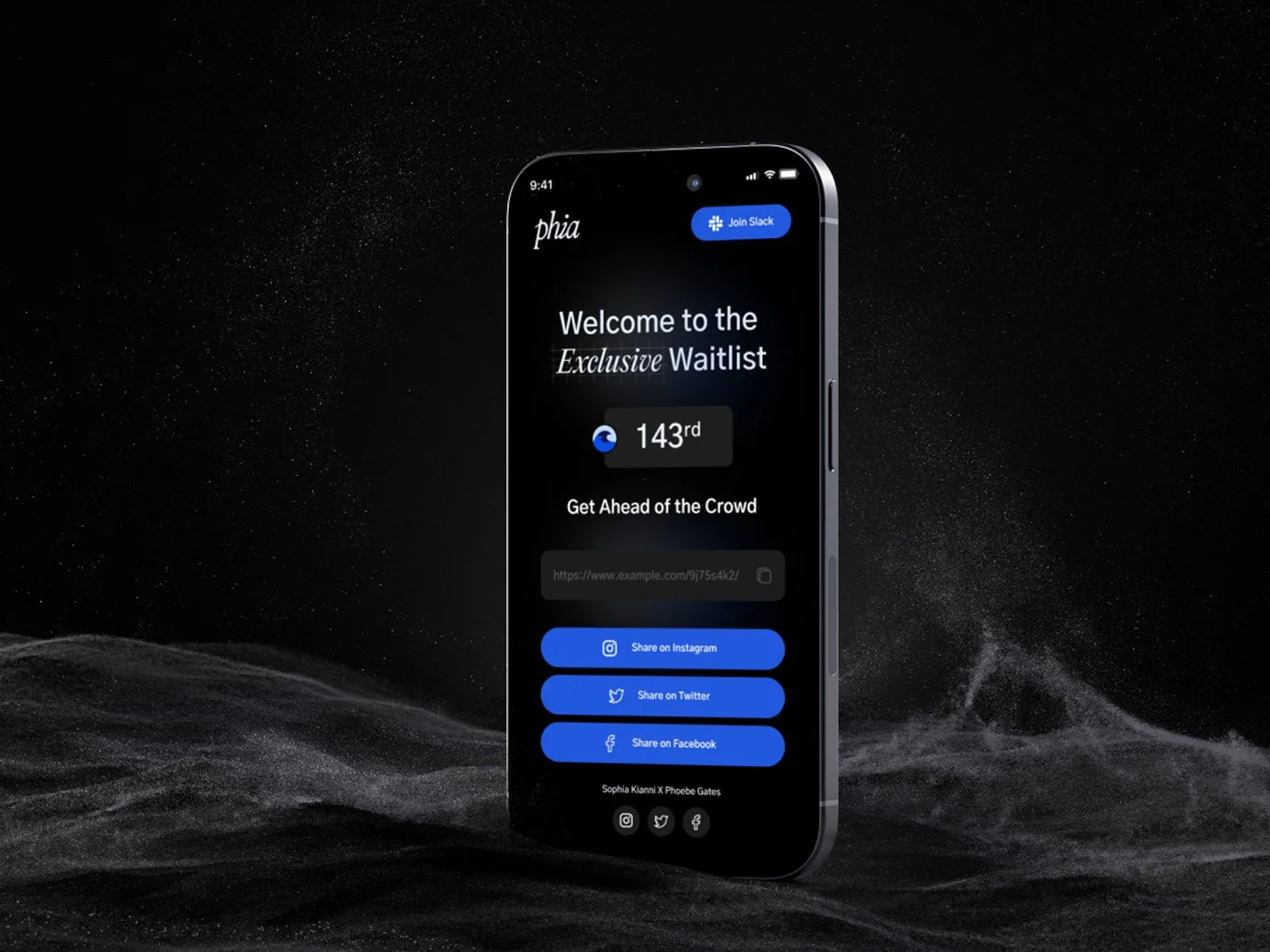Phia: The AI Fashion App That Might Just Outsmart Sustainability Marketing
Phoebe Gates - daughter of Bill Gates - and her Stanford roommate, United Nations climate advisor and Climate Cardinals Founder, Sophia Kianni, have just launched what could be the next big thing in fashion tech: Phia.
With $850,000 in seed funding and a vision for a smarter, more sustainable shopping experience, the duo has introduced a sleek browser extension and mobile app that’s already making waves.
But the thing that interests us the most: Phia isn't leading with sustainability - at least not explicitly.
From Fashion Nation
What Is Phia?
Phia acts as a digital shopping assistant. It scans over 40,000 online retailers, compares prices in real-time, and promotes secondhand alternatives from platforms like The RealReal, Poshmark, and Vestiaire Collective.
Some standout features include:
“Should I Buy This?” Button – Tells you if an item is overpriced, average, or a steal based on real-time data.
Secondhand Integrations – Surfacing resale options for the same items or better.
Price Drop Alerts – Get notified when that wishlist item finally dips in price.
In just one month, Phia has already gained over 100,000 users - an impressive start for a startup.
Despite the Gates name, Phia’s funding came from a diverse group of notable investors - including Kris Jenner, Spanx founder Sara Blakely, and media executive Joanne Bradford. Bill Gates did not fund the venture, making its rapid success even more compelling.
How They Nailed the Launch
Phia’s marketing rollout is a masterclass in Gen Z brand building:
They launched a podcast, The Burnouts.
Hosted on Alex Cooper’s Unwell Network (Call Her Daddy), the podcast explores entrepreneurship with elite guests and candid conversations. A clever move that builds community and content around the app’s values.
Their first guest? Kris Jenner.
As both an investor and the queen of personal brand-building, Jenner’s endorsement instantly added credibility and reach.
They leveraged their personal brands.
Sophia Kianni’s activist presence via Climate Cardinals and the UN, paired with Phoebe’s high-profile background, created an instant audience. The results? High visibility, strategic partnerships, and user growth at scale.
The Sustainability Paradox
Phia’s technology promotes more mindful consumption: think secondhand suggestions, less overpaying, and fewer impulse buys. Yet, sustainability isn't their headline - convenience and savings are.
And maybe that’s the smartest move of all.
In an economy where Gen Z is very concerned about inflation and recession indicators, the Phia team chose to align with what people want now, not just what they “should” care about. As The Fashion Law put it: the app succeeds because it fits seamlessly into a convenience-first culture.
So, we have to ask:
Should We Rethink How We Market Ethical Products?
Phia’s rise challenges the traditional sustainability narrative. It doesn’t wave the eco-flag - yet it fosters better buying habits. So do we need to reframe the way we communicate sustainability?
Should we lead with value - price, ease, aesthetics - and let ethics follow?
Can we drive meaningful impact by embedding sustainability into the product, not the pitch?
Is the language of “eco-consciousness” turning off the very audience we’re trying to reach?
💡 Final Thoughts
Whether Phia turns out to be truly revolutionary is still TBD. But what’s clear is this: they’ve cracked the code on how to launch a purpose-driven app without making it feel preachy.
They’re not asking Gen Z to “save the planet” - they’re helping them shop smarter and more secondhand. And maybe that’s the more effective path to long-term change.
So, what do you think? Is this the new playbook for sustainable tech? And is it time we stopped leading with values - and started embedding them instead? Let’s talk.




